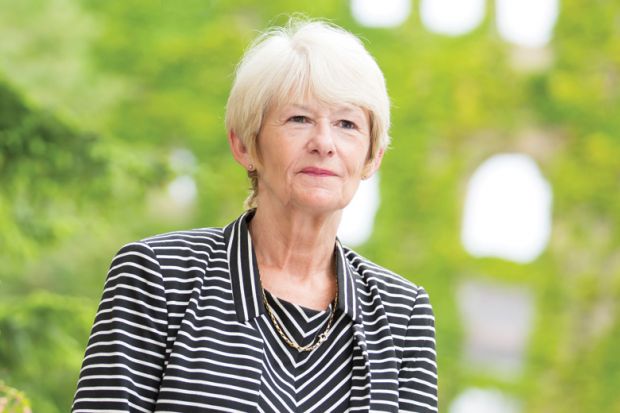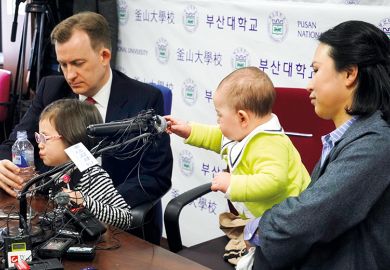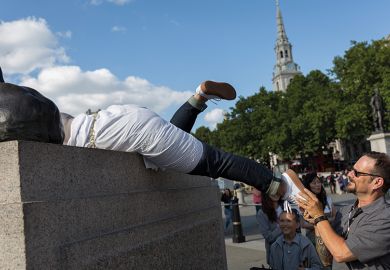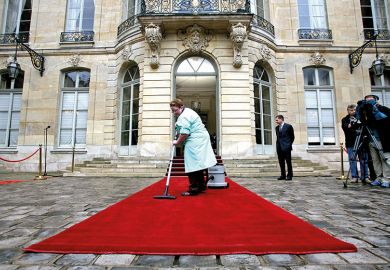Dame Nancy Rothwell has a career path that most academics could only envy: she completed her PhD in two years and got it published in Nature, enjoyed a stellar research career as a physiologist, and now leads one of the UK’s premier higher education institutions, the University of Manchester.
In the course of this she successfully managed to switch academic field – from obesity to neuroscience – and established herself as one of the country’s leading science advocates, serving as founding president of the Royal Society of Biology and delivering the Royal Institution Christmas Lectures in 1998.
Some might consider this all the more remarkable given that she is a woman rising to the top of academic fields and university hierarchies that have traditionally been dominated by men. Speaking at an event at Churchill College, Cambridge, Dame Nancy said she did not feel that she had ever been discriminated against because of her gender – indeed, she argued that some opportunities have come her way because she is a woman.
But, discussing her career with Dame Athene Donald, master of Churchill, she acknowledged that discrimination and unconscious bias remained a significant problem – and that many female researchers still faced barriers to taking up leadership positions.
“An awful lot of women look at a job and think ‘I couldn’t do that very well’,” said Dame Nancy, recalling her reluctance to apply to succeed Alan Gilbert as Manchester president in 2010. She recalled thinking about all the things that Professor Gilbert “was really good at and I wasn’t”.
In time, however, she described, she recognised that she didn’t have to do the job in the same way as her predecessor, and could shape it to fit her own strengths.
“It was me thinking ‘I can’t do those things very well’ rather than thinking ‘well don’t do them then, because that’s not you’,” Dame Nancy recalled.
Dame Nancy acknowledged that some things were “much harder now” for early career academics – be they male or female – in particular highlighting the intense competition for funding and jobs. She added that it remained difficult to work across disciplines, given that funding opportunities and assessments such as those made under the UK’s research excellence framework remained tied, on the whole, to disciplinary divides.
But she said that there were many other areas where support for junior researchers was now much better – including the provision of training in public engagement and how to write a paper, and better mentoring.
Asked in a question and answer session whether she supported positive discrimination to improve the representation of women, Dame Nancy said that she did not. “I think that can result in whoever gets the positive discrimination wondering if they’ve got something because they’ve been helped,” she said.
Dame Nancy added that it was “quite hard” to strip out personal information from academic CVs to avoid unconscious bias, since other entries, such as publication records, could allow readers to make inferences.
But she said that many hiring committees were now actively searching for more female and minority candidates, and that other changes to the recruitment process – for example, holding a series of panel meetings, rather than a high-stakes interview – could help to make the recruitment process fairer.
POSTSCRIPT:
Print headline: ‘Shape the role to fit your own strengths’
Register to continue
Why register?
- Registration is free and only takes a moment
- Once registered, you can read 3 articles a month
- Sign up for our newsletter
Subscribe
Or subscribe for unlimited access to:
- Unlimited access to news, views, insights & reviews
- Digital editions
- Digital access to THE’s university and college rankings analysis
Already registered or a current subscriber? Login










